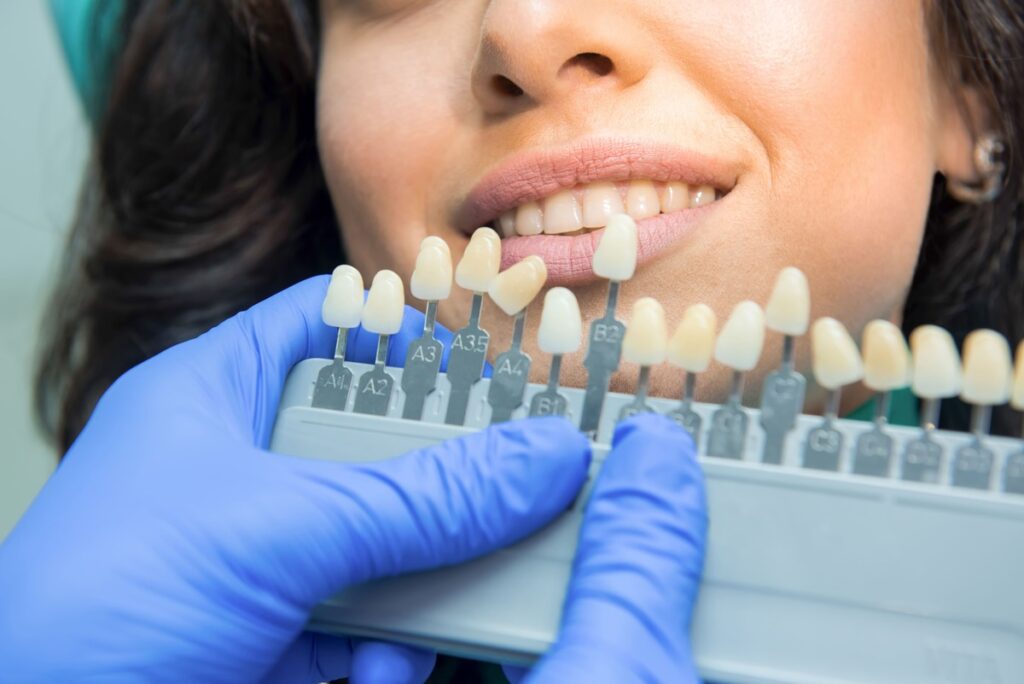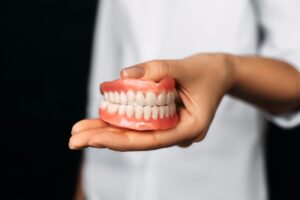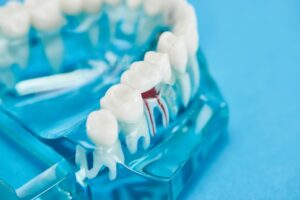Veneers are a popular cosmetic dental treatment that can transform the appearance of your smile. While they offer numerous benefits, many people are curious about their lifespan and how long they can expect veneers to last. In this article, we will explore the factors that can affect the longevity of veneers and provide tips on how to care for them to ensure they last as long as possible.
Factors Affecting the Lifespan of Veneers
There are several factors that can influence how long veneers last. These factors include the quality of materials used, the skill of the dentist, oral hygiene habits, teeth grinding and clenching, and dietary habits.
Quality of Materials
The type of materials used to create the veneers can impact their durability and longevity. High-quality porcelain veneers tend to last longer than composite resin veneers. Porcelain veneers are known for their durability and resistance to stains, while composite resin veneers may be more susceptible to chipping and staining over time.
Skill of the Dentist
The expertise of the dentist and the precision with which the veneers are placed can affect their lifespan. It is crucial to choose a qualified and experienced dentist for your veneer treatment. A skilled dentist will ensure that the veneers are properly bonded to your teeth, reducing the risk of complications and increasing their lifespan.
Oral Hygiene Habits
Proper oral hygiene practices, including regular brushing, flossing, and dental check-ups, are essential for maintaining the longevity of veneers. Good oral hygiene can prevent common issues like decay and gum disease, which can compromise the lifespan of veneers. It is important to brush your teeth at least twice a day with a soft-bristle toothbrush and non-abrasive toothpaste. Flossing should be done daily to remove plaque and debris from between the teeth and veneers.
Teeth Grinding and Clenching
Bruxism, or teeth grinding and clenching, can severely damage veneers. It is important to address bruxism through the use of a custom mouthguard to protect both your natural teeth and veneers. A mouthguard can help absorb the force of grinding and clenching, reducing the risk of veneer damage.
Dietary Habits
Certain foods and beverages, such as highly acidic or staining substances, can negatively impact the lifespan of veneers. It is advisable to limit the consumption of these substances and adopt a balanced diet for optimal veneer longevity. Acidic foods and beverages can erode the enamel on the surface of veneers, while staining substances like coffee, tea, and red wine can discolor the veneers over time.

How Long Do Veneers Typically Last?
Veneers can last between 10 and 15 years on average. However, with proper care and maintenance, they can last even longer. The actual lifespan of veneers can vary depending on individual factors such as overall oral health and habits. It is important to note that veneers may eventually need to be replaced due to natural wear and tear or changes in dental health.
Caring for Veneers to Extend Their Lifespan
There are several steps you can take to care for your veneers and extend their lifespan:
- Brushing and Flossing: Regular brushing with a soft-bristle toothbrush and non-abrasive toothpaste is essential. Flossing daily is also crucial to remove plaque and debris from between the teeth and veneers. It is important to use gentle, circular motions when brushing to avoid damaging the veneers.
- Avoiding Staining Substances: Limit or avoid consuming substances that can stain the veneers, such as coffee, tea, red wine, and tobacco products. If you do consume these substances, rinse your mouth and brush your teeth afterward.
- Non-Abrasive Toothpaste: Use a non-abrasive toothpaste to prevent scratching the surface of the veneers. Abrasive toothpaste can dull the appearance of veneers over time and potentially damage them.
- Regular Dental Check-ups: Schedule routine dental visits every six months for professional cleanings and examinations. During these visits, your dentist can identify any potential issues with your veneers and offer necessary treatments to maintain their lifespan.
- Mouthguard for Bruxism: If you suffer from bruxism, wearing a custom-fitted mouthguard while sleeping can protect your veneers from damage caused by teeth grinding and clenching.
By following these care tips, you can help ensure that your veneers last as long as possible and maintain their beautiful appearance.
Signs That Your Veneers Need Replacement
While veneers are designed to be durable, there may come a time when they need to be replaced. Some signs that indicate it may be time to replace your veneers include:
- Visible Damage: Chips, cracks, or fractures in the veneers are clear indications that they need replacement. These damages can compromise the appearance and functionality of the veneers.
- Recurring Discomfort: Discomfort or sensitivity that persists even after some time has elapsed since the veneer placement could indicate the need for replacement. It may be a sign that the veneers are not properly bonded or fitted.
- Changes in Color: If the veneers start to discolor or become noticeably different from your natural teeth, it may be necessary to replace them.
- Recurring Decay or Gum Issues: Veneers should protect the underlying teeth from decay and gum disease. If you experience recurring problems, it could indicate that the veneers are not providing adequate protection and need replacement.
The Veneer Replacement Process
If your veneers need replacement, the process typically involves the following steps:
- Consultation: Schedule a consultation with your dentist to discuss your concerns and determine if veneer replacement is necessary.
- Removal of Existing Veneers: If replacement is recommended, your dentist will carefully remove the existing veneers, ensuring minimal damage to the underlying teeth.
- Impressions and Temporary Veneers: Impressions of your teeth will be taken to create new veneers. In the meantime, temporary veneers will be placed to protect your teeth and enhance aesthetics.
- Veneer Placement: Once the new veneers are ready, your dentist will bond them to your teeth using a dental adhesive. They will ensure a precise fit and make any necessary adjustments for comfort and appearance.
Overall, the lifespan of veneers can be extended through proper care, regular dental check-ups, and addressing any issues promptly. By following the tips mentioned in this article, you can enjoy the benefits of veneers for many years and maintain a beautiful smile.
Final recommendations
Veneers are a popular choice for those seeking to enhance their smile, offering a durable and aesthetically pleasing solution. Typically, veneers can last between 10 to 15 years, depending on various factors such as the quality of the materials used, the skill of the dentist, and the patient’s oral hygiene practices. Proper care, including regular dental check-ups and good oral hygiene, can significantly extend the lifespan of veneers.
It’s important to choose a reputable dental clinic to ensure the best results. For those in Miami, Florida, Ultrasmile Miami offers a variety of dental services, including veneers, provided by the best professionals. Their team is dedicated to delivering high-quality care and ensuring the best possible experience for their patients. By opting for experienced professionals at Ultrasmile Miami, you can achieve a beautiful, long-lasting smile.
In conclusion, while veneers are a long-lasting dental solution, their lifespan depends on multiple factors. By maintaining good oral hygiene and consulting with skilled professionals, you can enjoy the benefits of veneers for many years.







